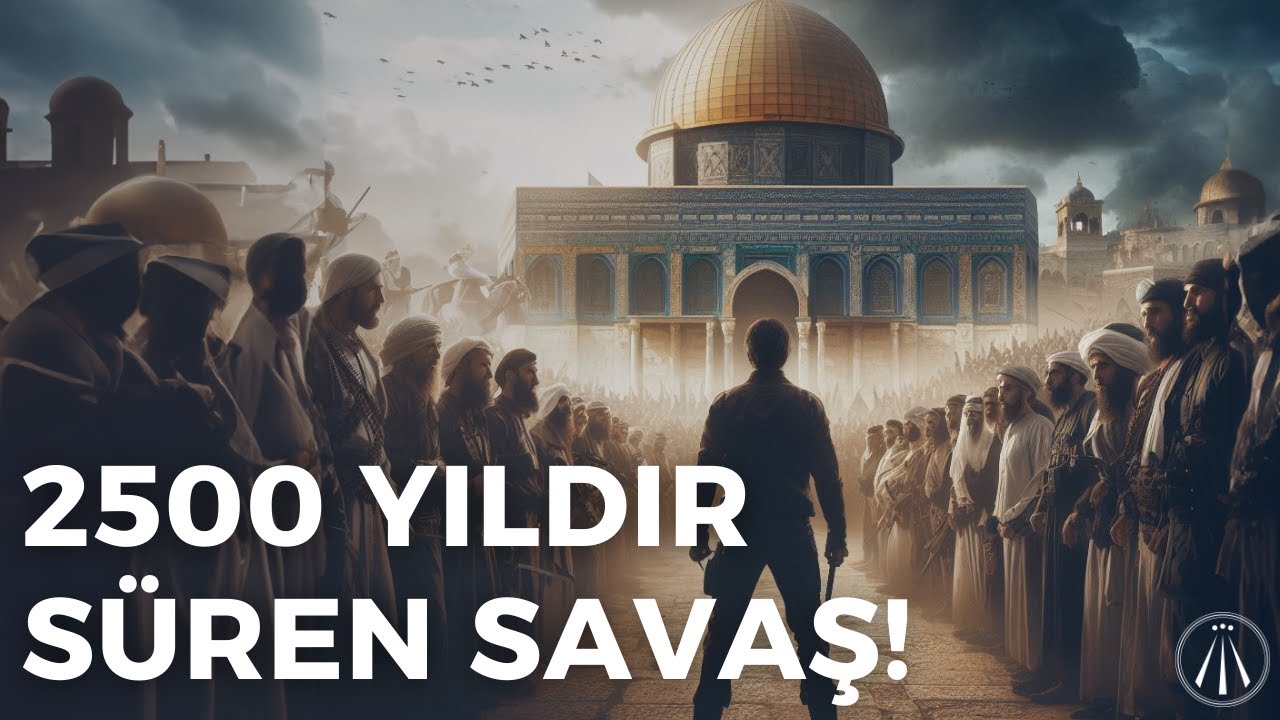Histoire des juifs - Résumé depuis 750 av. J-C jusqu'aux conflit israélo-palestinien
Summary
TLDRThe video script chronicles the complex history of the Israeli-Palestinian conflict, beginning with the ancient kingdoms of the Middle East. It details the conquests by various empires, including the Assyrians, Babylonians, Persians, and Romans, and the subsequent Jewish diaspora. The narrative continues through the rise of Christianity and Islam, the Jewish golden age in Al-Andalus, and the persecutions during the Crusades and the Black Death. It touches on the Jewish migration and the emergence of Zionism in response to pogroms and the need for a homeland. The script culminates in the political machinations of World War I, the Balfour Declaration, and the establishment of the British Mandate in Palestine, setting the stage for the modern conflict.
Takeaways
- 🏛 The Israeli-Palestinian conflict has ancient roots, dating back to 750 BC with the kingdom of Israel amidst the Assyrian and Egyptian empires.
- 🛡️ The Assyrians conquered the capital Samaria in -722, leading to a migration to Judah and Jerusalem, which later faced Babylonian conquest.
- 🕌 After the fall of Babylon, the Achaemenid Persian Empire allowed Judeans to return to Jerusalem and rebuild their city and culture, including the temple of Solomon and the writing of the Torah.
- 🗺️ Alexander the Great's conquests led to the division of his empire into Hellenistic kingdoms, with Judea under Ptolemaic control and later influenced by Hellenic culture.
- ⚔️ Roman conquest and subsequent revolts resulted in the destruction of Jerusalem's temple and the dispersal of Jews, with the Wailing Wall as a lasting symbol.
- 🕋 The rise of Islam and Arab conquests led to a period of tolerance for Jews, with Jerusalem becoming a holy city for three monotheistic religions.
- 📚 Jewish culture flourished in Al-Andalus during the Arab rule in the Iberian Peninsula, while in Europe, Jews played a crucial role as traders between Catholics and Muslims.
- 🛑 The Crusades brought violence against Jewish communities, who were seen as deicides, and led to further persecution and expulsions.
- 🗡️ The Black Death and the subsequent accusations of well-poisoning led to widespread persecution and expulsion of Jews from various European regions.
- 🏰 The Reconquista in Spain resulted in Jews being forced to convert or leave, with many settling in the Ottoman Empire and Poland-Lithuania.
- 🌍 The 17th-century massacres and subsequent migrations led to a significant Jewish population in the Russian Empire, where they faced pogroms and eventually emigrated to the USA and Western Europe.
- 🏛️ The First Zionist Congress in 1897 marked the beginning of the organized effort to establish a Jewish homeland in Palestine, setting the stage for the modern Israeli-Palestinian conflict.
Q & A
What was the historical context of the Middle East around 750 BC?
-Around 750 BC, the Middle East was divided into several small kingdoms and city-states, situated between the Assyrian Empire in the north and Egypt in the south, with the kingdom of Israel being one of them.
What significant event occurred in -722 when the Assyrian Empire took control of the capital Samaria?
-In -722, the capital Samaria fell to the Assyrian Empire, leading to a portion of the population fleeing to the kingdom of Judah and Jerusalem.
How did the Babylonians' conquest impact the region after the fall of the Assyrian Empire?
-After the fall of the Assyrian Empire, the Babylonians took over the region, eventually razing Jerusalem and moving a significant part of the population to their capital.
What was the significance of the Achaemenid Persian Empire's takeover of Babylon in -539?
-In -539, the Achaemenid Persian Empire took over Babylon and allowed the formerly defeated peoples, including a good part of the Judeans, to return to their lands and rebuild their cities and culture.
How did Alexander the Great's conquests affect Judea and the Jewish community?
-Alexander the Great's conquests led to Judea coming under the control of the Ptolemaic dynasty, and a Jewish community settling in Alexandria, where the Torah was translated into Greek.
What cultural conflict arose between Hellenic and Jewish cultures in Judea?
-A cultural conflict arose when an altar in the temple was dedicated to the worship of Zeus, leading to a traditionalist Jewish militia organizing and regaining control of Jerusalem, restoring the temple and making the kingdom of Judea independent.
What were the consequences of the Roman conquest of the region a century after Alexander the Great's death?
-Following the Roman conquest, the Judeans attempted two revolts, both of which were violently suppressed, resulting in the destruction of Jerusalem and its temple, and the prohibition of Jews in Judea.
How did the rise of Islam and the Arab conquest in the seventh century affect the Jewish population?
-With the rise of Islam and the Arab conquest, Jews were generally tolerated by the Arabs, and only polytheistic peoples were converted by force. The city of Jerusalem became a holy city for the three monotheistic religions.
What was the situation of Jews in Western Europe during the time of the Seljuk Turks' expansion?
-During the time of the Seljuk Turks' expansion, Jews in Western Europe were persecuted, especially during the organization of the Crusades, where they were massacred as they were seen as a deicide people.
How did the Black Death of 1347 impact the Jewish communities in Europe?
-The Black Death led to rumors accusing Jews of poisoning wells, resulting in their persecution and eventual expulsion, particularly along the Rhine-Rhone axis.
What was the outcome of the first Zionist Congress in 1897 and how did it relate to the British Balfour Declaration?
-The first Zionist Congress in 1897 planned to establish a homeland for the Jewish people in Palestine. This was followed by the Balfour Declaration, in which British Foreign Secretary Arthur Balfour promised a Jewish national home in Palestine in exchange for financial aid from Jewish banks.
Outlines

Dieser Bereich ist nur für Premium-Benutzer verfügbar. Bitte führen Sie ein Upgrade durch, um auf diesen Abschnitt zuzugreifen.
Upgrade durchführenMindmap

Dieser Bereich ist nur für Premium-Benutzer verfügbar. Bitte führen Sie ein Upgrade durch, um auf diesen Abschnitt zuzugreifen.
Upgrade durchführenKeywords

Dieser Bereich ist nur für Premium-Benutzer verfügbar. Bitte führen Sie ein Upgrade durch, um auf diesen Abschnitt zuzugreifen.
Upgrade durchführenHighlights

Dieser Bereich ist nur für Premium-Benutzer verfügbar. Bitte führen Sie ein Upgrade durch, um auf diesen Abschnitt zuzugreifen.
Upgrade durchführenTranscripts

Dieser Bereich ist nur für Premium-Benutzer verfügbar. Bitte führen Sie ein Upgrade durch, um auf diesen Abschnitt zuzugreifen.
Upgrade durchführenWeitere ähnliche Videos ansehen

İsrail-Filistin Savaşının Arkasındaki Gerçekler: Tarihi, Siyasi ve Dini Nedenleri

د.أسامة فوزي # 3804 - من يحكم شمال غزة ؟

Politics, policies & power: John Mearsheimer’s blunt analysis | Centre Stage

Middle East geopolitics explained simply || The Middle East explained in a nutshell

Israeli–Palestinian Conflict

The Qatar Strike by Israel and Its Geopolitical Consequences
5.0 / 5 (0 votes)
